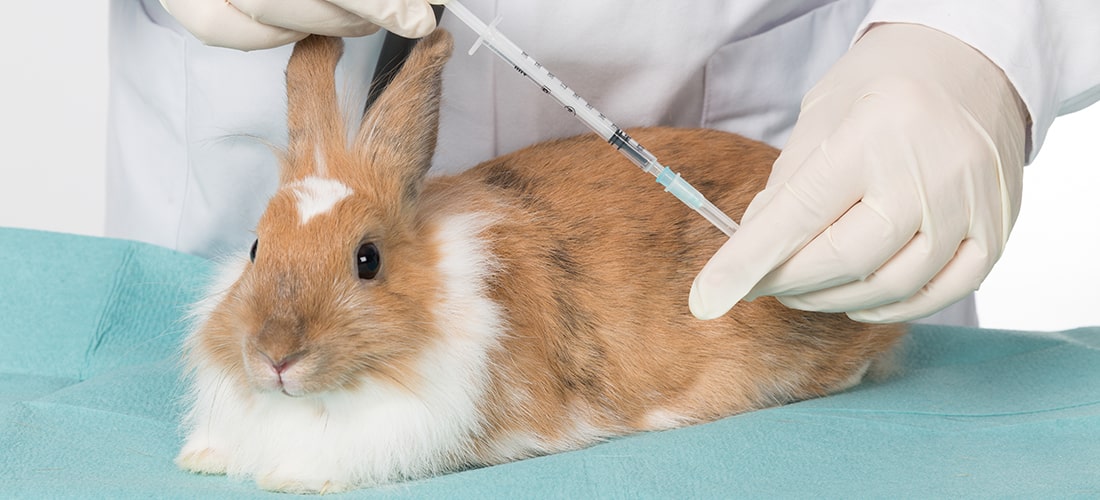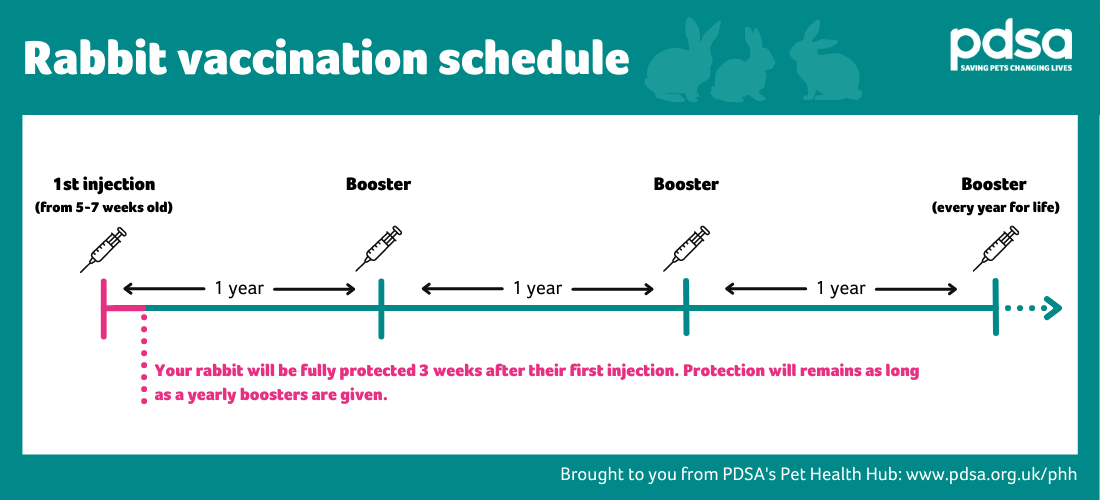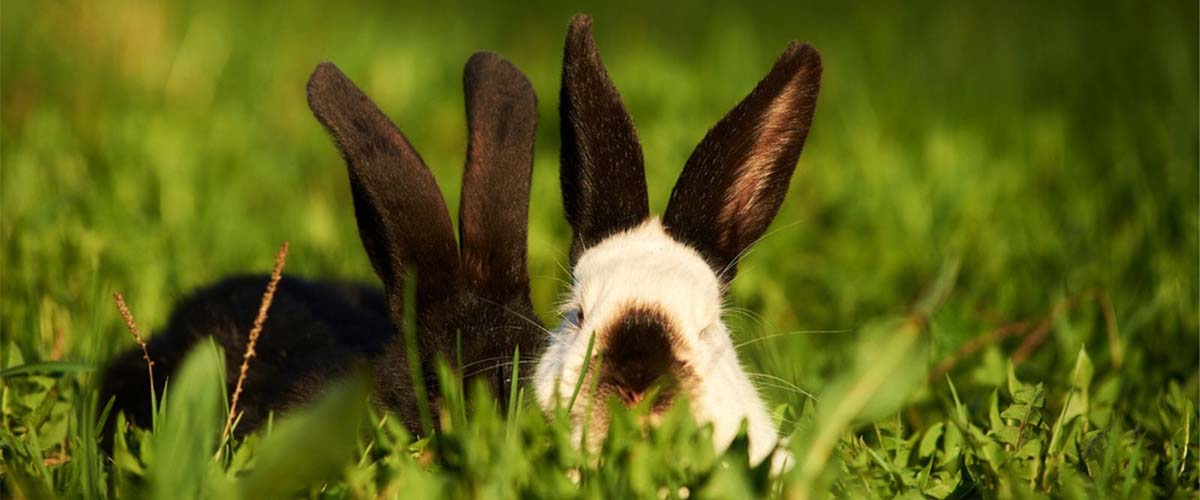Rabbit Vaccines
Overview
- Rabbits need to be regularly vaccinated to protect them against three potentially deadly diseases:
- Myxomatosis
- Rabbit Viral Haemorrhagic Disease-1 (RVHD-1)
- Rabbit Viral Haemorrhagic Disease-2 (RVHD-2)
- Your rabbits’ first vaccinations should be at around 5-7 weeks of age, after that they should have a booster injection every year.
- Our vets recommend vaccinating all pet rabbits, including house rabbits.

Pet rabbits in the UK should be vaccinated against:
- Myxomatosis
- Rabbit Viral Haemorrhagic Disease-1 (RVHD-1)
- Rabbit Viral Haemorrhagic Disease-2 (RVHD-2)
Your rabbits should have their first vaccine at around 5-7 weeks old, and then a booster every year to keep them protected. There is now a single vaccine for rabbits that protects against all three diseases.

Should I vaccinate my house rabbits?
Yes, we recommend vaccinating both indoor and outdoor rabbits because Myxomatosis, RVHD-1, and RVHD-2 can all spread via insects (such as mosquitos and fleas), wild rabbits, and on surfaces such as clothes and shoes.
Protecting unvaccinated rabbits
Until your rabbits are fully vaccinated, you will need to protect them against Myxomatosis, RVHD-1 and RVHD-2 – all of which can spread via infected wild rabbits and insects (such as flies and mosquitos). Until they are fully protected you may want to consider the following precautions:
- Keep them indoors – although it won’t provide 100% protection, keeping your rabbits indoors until they are fully vaccinated will stop them meeting any wild rabbits, and minimise the insects they come into contact with. You will just need to make sure they have enough space to exercise, and provide them with places to hide, dig and jump. Rabbits need an absolute minimum living area of 10ft x 6ft x 3ft high (3m x 2m x 1m) – but we recommend they have a lot more.
- Double fencing in the garden – if you can’t bring your rabbits indoors, make sure wild rabbits can’t get to them or their living space. The best way to do this is by using two barriers (i.e. double fences) to separate them.
- Mosquito netting – mosquito netting can be used to protect your rabbits from insects. Put it over your windows if your bunnies are indoors, and over their whole living space if they are outdoors.
- Cleanliness – dirt attracts insects, so it’s important to keep your rabbits clean and check their bottoms regularly. Clean any muck off them using lukewarm water, and clean their living space daily, using water or a rabbit-safe disinfectant such as ‘Virkon S’ or ‘Anigene HLD4V’. Read our advice on how to clean your rabbits.
Side effects
As with any medication, vaccines can cause side effects. Fortunately, they are rare, usually very mild, and tend to resolve within 24-48 hours. Common vaccine side effects include lethargy (low energy), reduced appetite, and a small round swelling around the injection site. Call your vet for advice if you notice any side effects after a vaccination, especially if your rabbit stops eating.
Can my rabbit have the 3 in 1 vaccine if they’ve had different ones before?
This 3 in 1 vaccine is suitable for baby rabbits that have never had a vaccine before, and rabbits that are completely up-to-date with their vaccinations. If your rabbit has missed a booster, or hasn’t had a RVHD-2 vaccine before, they may initially need two separate injections spaced out by a couple of weeks – speak to your vet for more information.
Published: February 2022
Did you find this page useful?
Tell us more
Please note, our vets and nurses are unable to respond to questions via this form. If you are concerned about your pet’s health, please contact your vet directly.
Thank you for your feedback
Want to hear more about PDSA and get pet care tips from our vet experts?
Sign up to our e-newsletter
Written by vets and vet nurses. This advice is for UK pets only. Illustrations by Samantha Elmhurst.

